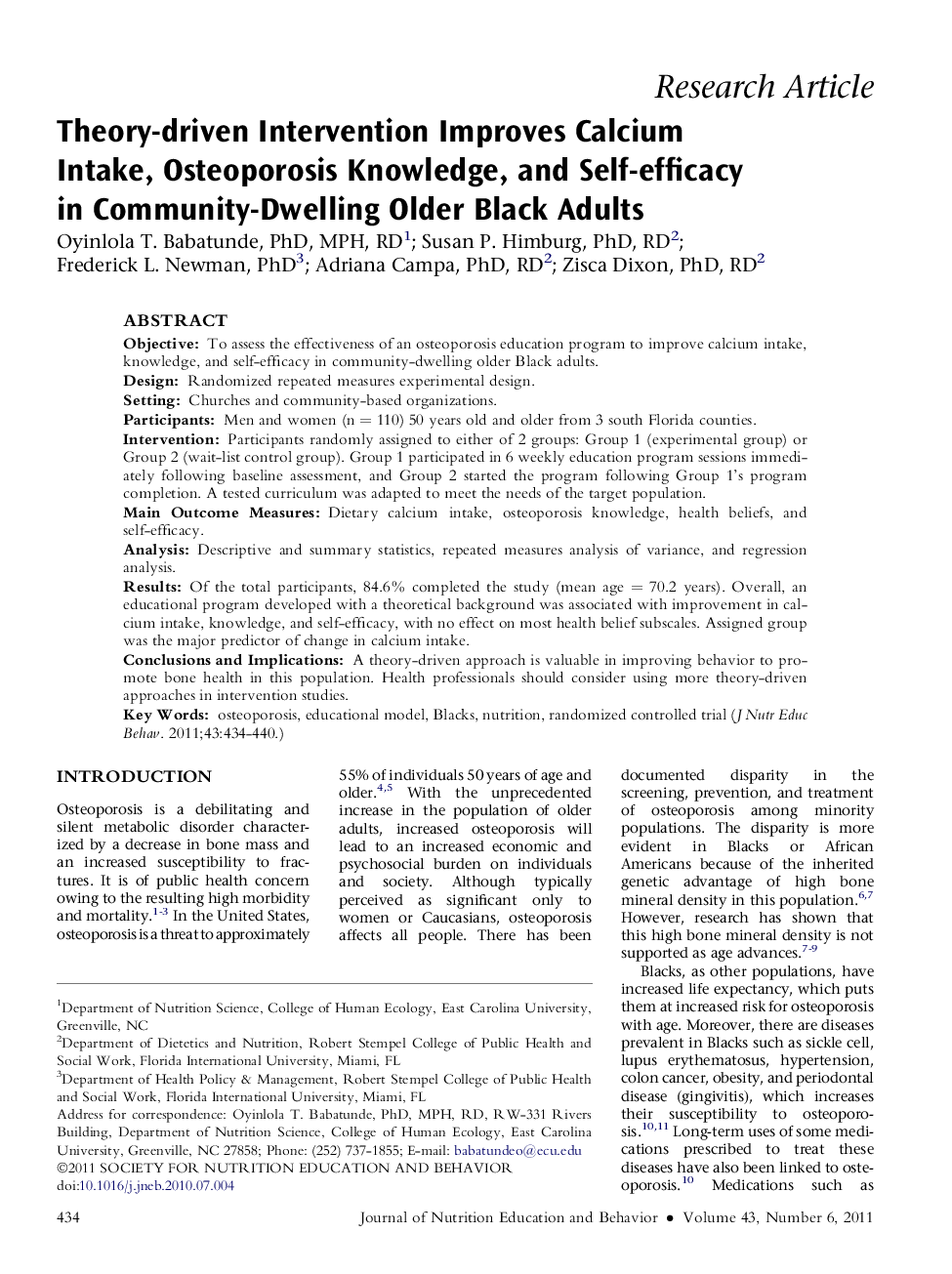| Article ID | Journal | Published Year | Pages | File Type |
|---|---|---|---|---|
| 361761 | Journal of Nutrition Education and Behavior | 2011 | 7 Pages |
ObjectiveTo assess the effectiveness of an osteoporosis education program to improve calcium intake, knowledge, and self-efficacy in community-dwelling older Black adults.DesignRandomized repeated measures experimental design.SettingChurches and community-based organizations.ParticipantsMen and women (n = 110) 50 years old and older from 3 south Florida counties.InterventionParticipants randomly assigned to either of 2 groups: Group 1 (experimental group) or Group 2 (wait-list control group). Group 1 participated in 6 weekly education program sessions immediately following baseline assessment, and Group 2 started the program following Group 1’s program completion. A tested curriculum was adapted to meet the needs of the target population.Main Outcome MeasuresDietary calcium intake, osteoporosis knowledge, health beliefs, and self-efficacy.AnalysisDescriptive and summary statistics, repeated measures analysis of variance, and regression analysis.ResultsOf the total participants, 84.6% completed the study (mean age = 70.2 years). Overall, an educational program developed with a theoretical background was associated with improvement in calcium intake, knowledge, and self-efficacy, with no effect on most health belief subscales. Assigned group was the major predictor of change in calcium intake.Conclusions and ImplicationsA theory-driven approach is valuable in improving behavior to promote bone health in this population. Health professionals should consider using more theory-driven approaches in intervention studies.
